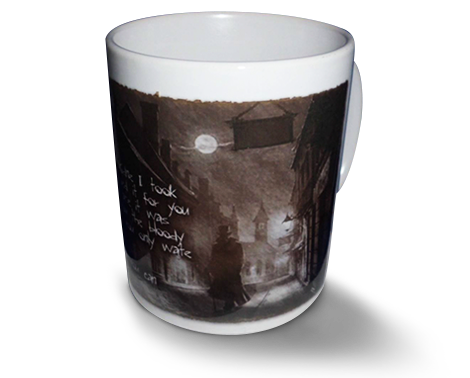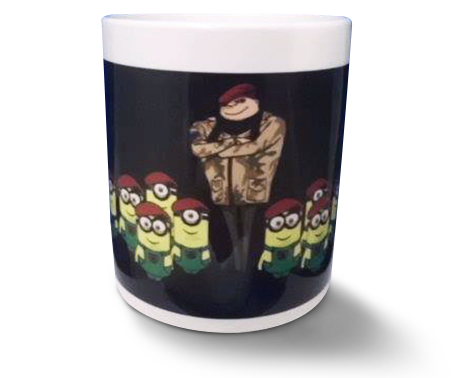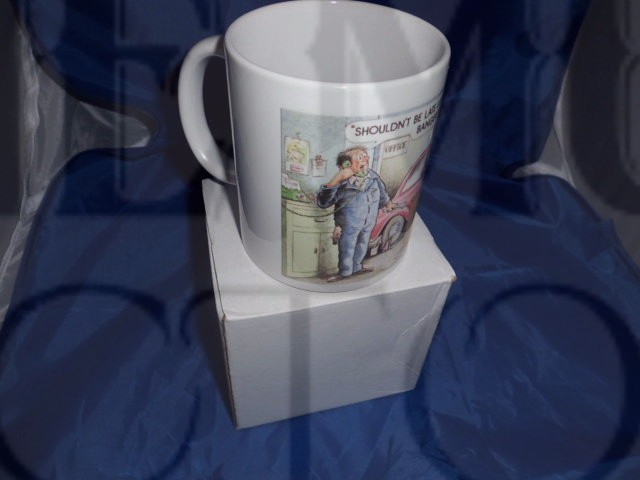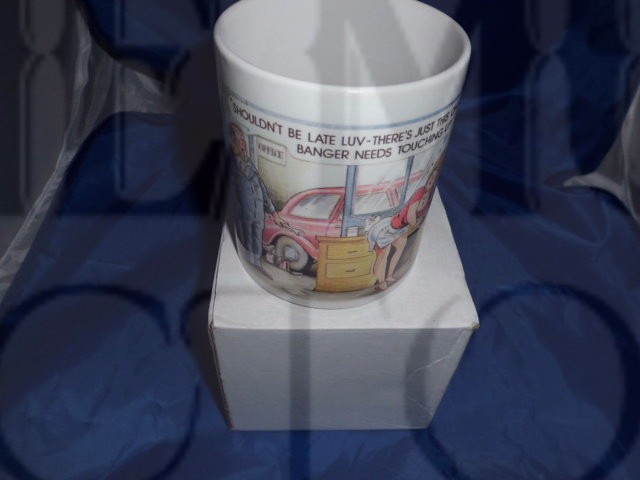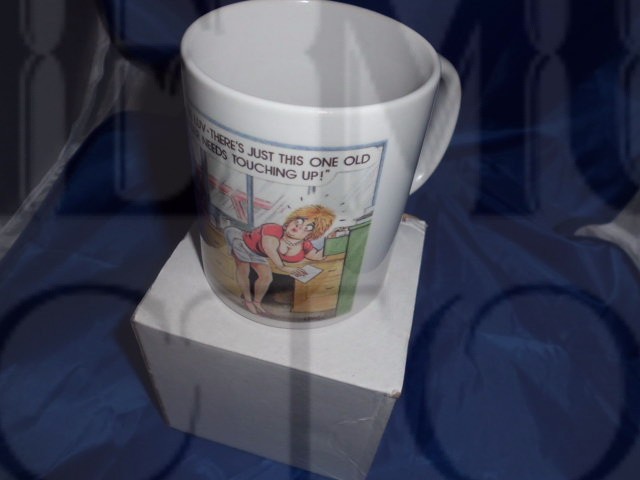2nd edition Saucy seaside Postcard Mug
2nd edition Saucy seaside Postcard Mug
11oz
most of the cards Donald produced are jovial comic cards, there are a small percentage which use the art of the Double Entendre or Hidden Meaning.
The beautiful thing about the Double Entendre is that it is designed to pass over the head of those who cannot see the alternative meaning, consequently Donald's cards appear to depict perfectly innocent situations, and also the text that accompanies them is equally innocent and often is a known phrase, however there are hidden meanings to be found if you already know to what is being alluded.
Consequently, we believe children will find nothing offensive in these saucey seaside postcard mugs.
1894, British publishers were given permission by the Royal Mail to manufacture and distribute picture postcards which could be sent through the mail. Early postcards were pictures of famous landmarks, scenic views, photographs, lighthouses, animals or drawings of celebrities and so on. With steam locomotives providing fast and affordable travel the seaside became a popular tourist destination. The steam locomotives generated its own souvenir industry. The picture postcard was, and is, an essential staple of this industry.
In the early 1930’s cartoon style saucy postcards became widespread and at the peak of their popularity the sale of saucy postcards reached a massive 16 million a year. They were often tacky in nature making use of innuendo and traditionally featured stereotypical characters such as priests, large ladies and put-upon husbands in the same vein as the Carry On films.
early 1950’s, the newly elected Conservative government were concerned at the apparent deterioration of morals in Britain and decided on a crackdown on these postcards. The main target on their hit list was the renowned postcard artist Donald McGill. In the more liberal 1960’s the saucy postcard was revived and became to be considered, by some, as an art form.
The demise of the saucy postcard occurred during the 1970’s and 1980’s, the quality of the artwork and humor started to deteriorate with changing attitudes towards the cards content.
Despite the decline in popularity of postcards that are overtly saucy, postcards continue to be a significant economic and cultural aspect of British seaside tourism. Sold by newsagents and street vendors as well as by specialist souvenir shops. Modern seaside postcards often feature multiple depiction’s of the resort in unusually favorable weather conditions. These continuously draw tourist to the seaside. The use of saturated color and a general departure from realism have made the postcards of the later twentieth century become collected and desired by undiscriminating taste.
Original postcards are now highly sought after and rare examples can command very high prices at auction!!!!
Orwell published an essay on Donald McGill, which was published in the literary journal Horizon ( this has been republished by Greaves & Thomas and is available from the museum shop or the via this website. Whilst Orwell is regarded as one of Britain’s great 20th century novelists, he clearly was not as apt at being a journalist, as he makes numerous mistakes, in particular presuming that Donald Mcgill was a trade name with numerous artists contributing.
Clearly George Orwell had not considered it necessary to interview Donald McGill or Constance Publishers. This is surprising as the journal would have made contact so that copyright consent could be sought from Constance to reproduce some of Donald’s cards in the publication. Orwell’s comments later led to Donald writing to the Times newspaper to clarify the mistakes. Nevertheless despite this lapse in Orwells output, the article helped to secure greater acclaim for Donald and his work.
It is also interesting to note that in 1948 when George Orwell wrote his classic 1984, he decided to switch the order of 4 and 8 to make 84 instead of 48.
Orwell who had fought against fascists and no doubt saw the flaws of Stalin’s Russia, deemed that 1984 could well be a fitting time in the future for a Big Brother State watching and controlling your every move. In many ways 1954 might have been a more fitting title for Orwell’s classic, as Donald and his publishers found themselves running foul of the law for using the subtle art of the ‘Double Entendre’ or ‘hidden meaning’.
The beautiful thing about the Double Entendre is that it is designed to pass over the head of those who cannot see the alternative meaning, consequently Donalds cards appear to depict perfectly innocent situations, and also the text that accompanies them is equally innocent. However there are hidden meanings to be found if you already know to what is being alluded.
Consequently in 1954 when Donald and Constance were prosecuted under the 1857 Obscenity Act, they were not being prosecuted for written words or an obscene image. Instead they were being prosecuted for a potential thought. Clearly the Big Brother State had well and truly arrived and the controlling of free thought would now be on the agenda with harsh reprisals for those who dared step out of line.
Interesting to note that when George Orwell wrote his essay on Donald, he was under surveillance by MI5 as a suspected communist.


